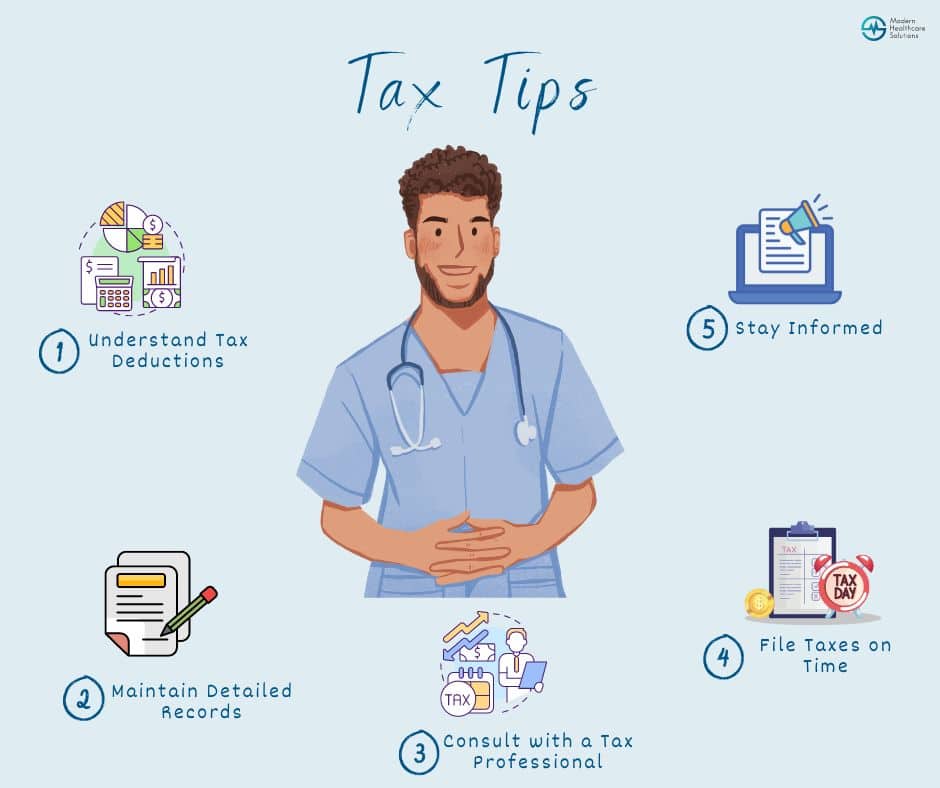Managing Finances as a Travel Healthcare Professional: Budgeting and Tax Tips
Mar 11, 2024
SHARE THIS ARTICLE
As a travel healthcare professional, you have the unique opportunity to explore new places, meet new people, and advance your career while making a positive impact on patient care. However, managing finances effectively is essential to ensure that your travel adventures are both fulfilling and financially sustainable. In this blog post, we’ll discuss some budgeting and tax tips to help you navigate the financial aspects of your travel healthcare journey.
Budgeting Tips

1. Create a Travel Budget: Before embarking on your assignment, take the time to create a detailed budget that outlines your expected expenses, including housing, transportation, meals, and incidentals. Be sure to account for any variations in the cost of living between your home and destination cities.
2. Track Your Expenses: Keep track of your spending throughout your assignment to ensure that you stay within your budget. Use budgeting apps or spreadsheets to monitor your expenses and identify areas where you can cut back if necessary.
3. Save for Emergencies: Building an emergency fund is crucial for unexpected expenses or periods between assignments. Aim to set aside at least three to six months’ worth of living expenses in a high-yield savings account.
4. Take Advantage of Perks: Many travel healthcare agencies offer benefits such as housing stipends, travel reimbursements, and meal allowances. Make sure to take full advantage of these perks to stretch your budget further.
5. Plan for Time Off: While exploring new destinations is exciting, it’s essential to budget for downtime between assignments. Allocate funds for travel, leisure activities, and relaxation to make the most of your time off.
Tax Tips

1. Understand Tax Deductions: As a travel healthcare professional, you may be eligible for various tax deductions, including travel expenses, licensing and certification fees, continuing education courses, and professional dues. Familiarize yourself with these deductions to minimize your tax liability.
2. Maintain Detailed Records: Keep thorough records of your travel-related expenses, including receipts, mileage logs, and documentation of work-related purchases. Organizing your records will make it easier to claim deductions and maximize your tax savings.
3. Consult with a Tax Professional: Tax laws and regulations can be complex, especially for individuals who work in multiple states. Consider seeking guidance from a tax professional who specializes in working with travel healthcare professionals. They can help you navigate the intricacies of tax filing and ensure compliance with state and federal tax laws.
4. File Taxes on Time: Missing tax deadlines can result in penalties and interest charges. Be proactive about filing your taxes on time, and if necessary, request an extension to avoid late fees.
5. Stay Informed: Tax laws and regulations are subject to change, so stay informed about any updates that may affect your tax situation. Subscribe to newsletters, attend seminars, or consult online resources to stay up to date on the latest tax developments.
Managing finances as a travel healthcare professional requires careful planning, budgeting, and tax preparation. By implementing these tips, you can achieve financial stability while enjoying the adventure and flexibility of travel healthcare assignments. Remember to prioritize your financial well-being to ensure a rewarding and sustainable career journey.